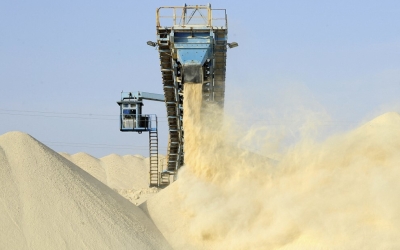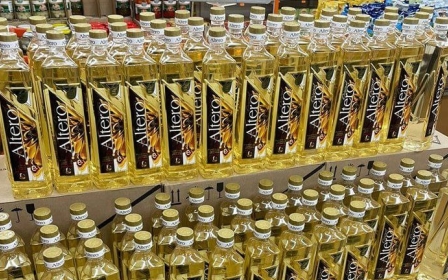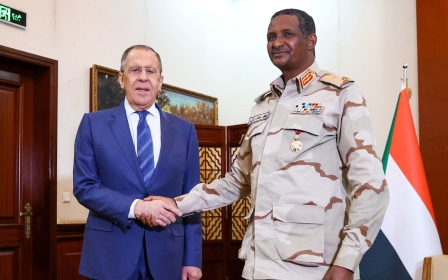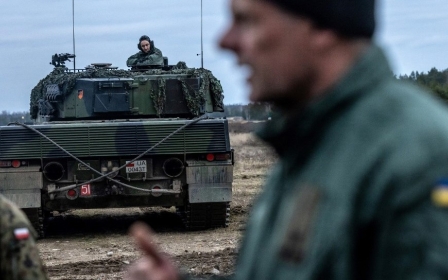Russia-Ukraine war: Morocco's economy would risk heavy price for taking sides
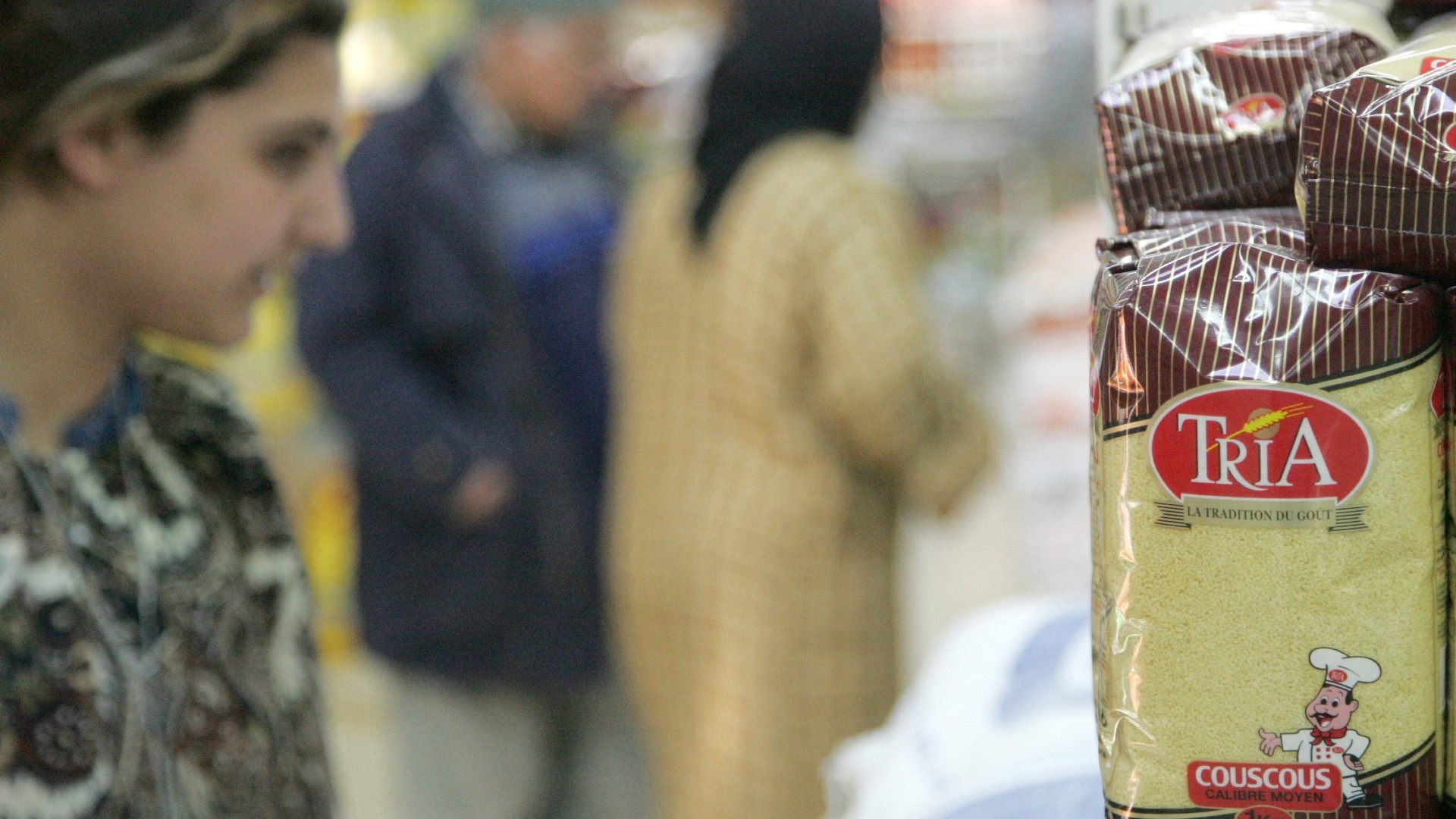
When Russia invaded Ukraine last February, Morocco, a major US ally, tried to maintain a neutral stance and was reticent to support Washington's anti-Kremlin measures.
Rabat abstained during a UN General Assembly vote to deplore Russian aggression, and rebuffed US efforts to join the western camp.
Reliant on grain imports from both countries, the North African nation tried to diplomatically maneuvere the conflict and attempted to maintain ties with both east and west, especially important as its economy was still reeling from the Covid-19 pandemic and a severe drought.
But with the devastating war now entering its second year, experts told Middle East Eye that the geopolitical reverberations of the conflict had forced Morocco to wrestle with a range of diplomatic and economic challenges, as well as the fickle nature of public opinion.
'Morocco has no choice but to remain neutral'
- Mohamed Chtatou, Mohammed V University
"The average Moroccan believes, deep down, that this is yet another European war, for European objectives and ideals," Mohamed Chtatou, a political analyst and professor of education sciences at Mohammed V University in Rabat, told MEE.
New MEE newsletter: Jerusalem Dispatch
Sign up to get the latest insights and analysis on Israel-Palestine, alongside Turkey Unpacked and other MEE newsletters
"The present war is the result of pushing the Russians to their last territorial defences by Nato."
Earlier this week, Russian President Vladimir Putin used a highly anticipated speech to deny any responsibility for the war and instead lashed out at his adversaries.
In his speech he claimed that Nato enlargement was the primary driver for the conflict as well as the alliance's failure to decisively rule out Ukrainian membership.
Such views have become prevalent in much of Morocco as illustrated with a Alliance of Democracies survey last May which found that only 14 percent of Moroccans wanted Rabat to "cut economic ties with Russia because of the war".
Anouar Majid, the vice president for global affairs at the University of New England, told MEE that for the average Moroccan the conflict was part of a "complicated geostrategic affair with little relevance to Morocco's actual interests".
Morocco's balancing act
Two days after Russia's launched its invasion, it became apparent Morocco was reluctant to pick sides.
The country's foreign ministry issued a vague communique that emphasised the kingdom's "concern," and its "support for the territorial integrity and national unity of all member states of the United Nations".
Morocco then used the following months to nurture ties with the pro-Ukrainian bloc and its Russian opponents.
In April, Moroccan representatives attended a conference at an American military base in Germany convened to discuss the provision of humanitarian and military aid to Ukraine. Morocco also supported the United Nations’ efforts to distribute humanitarian aid to Ukrainians.
However in June, King Mohammad VI sent Putin a letter celebrating their countries' relationship. Four months later the ministry of energy reached an agreement on nuclear power with Rosatom, a Russian state corporation that has assisted Russia's war effort.
Chtatou, the professor at Mohammed V University, told MEE that Morocco's friendly relations with Russia were economically driven.
"Morocco has no choice but to remain neutral," Chtatou said. "Basically, the country is an ally of the West but it also has good relations with Russia and China. As much as the country needs the U.S. and Europe for investment, it also needs the eastern world for technology and trade, so neutrality can pay."
As Western countries limited their imports of Russian fossil fuels, Morocco increased its own. In 2022, the kingdom imported 735,000 tonnes of diesel fuel from Russia, 11 times more than in 2021.
International sanctions have also complicated the ability of Russia, the world’s largest exporter of fertiliser in 2020, to sell this crucial product. Morocco, the fourth-largest exporter that year, responded with plans to up its production of phosphates by 10 percent.
Agricultural Time Bomb
But the impact of the Russian-Ukrainian War on Morocco's agricultural sector has been dire.
A report last year by the Foreign Agricultural Service, an American government agency, noted that Russia and Ukraine accounted for 24 percent of Morocco's imports of wheat. But since the outset of the conflict Ukraine’s exports have plummeted.
"For Morocco, it has always been a balancing act to achieve a reasonably secure supply of cereals, especially for wheat," said Ismail Ouraich, a policy analyst at the Swedish Agency for Growth Policy Analysis.
Ouraich suggested that Morocco's "pretty diversified supply" of wheat could help the kingdom withstand the worst effects of the Russia-Ukrainian war. In 2020, the kingdom imported $396m of wheat from France, more than from Russia and Ukraine combined.
"But in the long term, the situation looks pretty alarming given the potential impacts of climate change on the country," Ouraich told MEE.
The Foreign Agricultural Service report warned that Morocco's own yield of wheat could drop by 70 percent because of drought, a phenomenon exacerbated by climate change. The report also found that the Russian-Ukrainian War "has increased price volatility".
The African Development Bank (AfDB) has said the invasion triggered a shortage of about 30m tons of grains in Africa, leading to a sharp increase in cost.
"Despite Ukraine's geographic distance from Morocco, the impact of the Russian attack on this European country has been harsh on Moroccan agriculture," said Mostapha Nokraoui, a farmer and community leader in the southern Moroccan town of Tafraout.
Nokraoui highlighted increases in the cost of fuel, whose price has skyrocketed as international sanctions restrict Russia's exports of crude oil and natural gas. With farmers spending more on fuel for the systems that irrigate their crops and the vehicles that bring their produce to market, Moroccans are now seeing higher prices for food staples.
Last year, the Policy Center for the New South, a Moroccan think tank, issued a white paper attributing Morocco’s struggles with inflation to this spike in energy and food prices.
"Poverty and vulnerability rates will increase, and levels of disparity and inequality will increase," Nokraoui told MEE.
Economic Fallout
A report released earlier this month by the World Bank reported Morocco's December 2022 inflation rate as 8.3 percent, a number that the international financial institution linked to the Russia-Ukraine War.
"The Ukrainian crisis has had a strong impact on the Moroccan economy, particularly in terms of the price of raw materials, which has caused significant inflation that has impacted the entire population, especially the middle class and the poor," said Naoufel Belhaj, a professor of economics at Hassan II University in Casablanca.
Morocco has responded to the financial crisis by subsidising everyday goods and restricting exports.
Last month, Economy and Finance Minister Nadia Fettah Alaoui announced that the kingdom had paid $2.1 billion in subsidies for cooking gas, $983m for wheat, and $491.5m for sugar in 2022. In a more unusual move, the kingdom banned the export of onions, potatoes, and tomatoes to West Africa earlier this month in a bid to calm food prices.
Still, experts question the effectiveness and sustainability of these short-term measures as Morocco burns through its foreign currency reserves.
"People's purchasing power has decreased, yet salaries have not increased in both the public and private sectors," Belhaj told MEE. "Unemployment has increased and the middle class has lowered its level of consumption."
Nokraoui, the farmer, agreed: "I don't think that the patchwork solutions that the Moroccan government is taking will limit this current crisis."
That sentiment is spreading.
Just last week, a major labour union organised demonstrations against the rising cost of fuel and food. Protesters gathered in Meknes and Tangier as well as on Facebook and Twitter.
Even so, it seems unlikely that the financial crisis fuelled by Russia's invasion will inspire Moroccans to rally behind action against that country - a move that could itself worsen Morocco’s economic outlook.
"Moroccans want peace for all," said Chtatou, the professor in Rabat. "By not taking sides, the Moroccans believe that, hopefully, this could, eventually, bring much-needed peace, bearing in mind this war, if it gets out of hand, could bring about the apocalypse, God forbid."
This article is available in French on Middle East Eye French edition.
Middle East Eye delivers independent and unrivalled coverage and analysis of the Middle East, North Africa and beyond. To learn more about republishing this content and the associated fees, please fill out this form. More about MEE can be found here.



